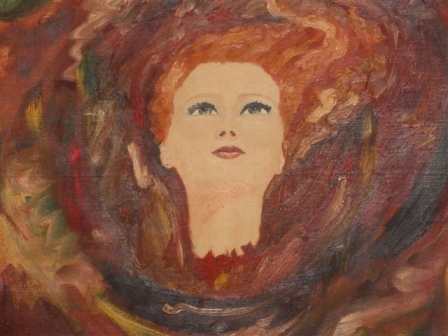|
 Religion and science have in common the search for THE ONE, which is the basis and foundation of the manifold. Some accept that God created the universe but would like some more details; for instance, how? They want a plausible answer that won't be refuted by experience. So far science does not provide such an answer, even to those who do not hold the creationist view. Science has many good models, which fit one part of reality or another, but when it comes to an overall view, a theory of everything, science has no answer. Religion and science have in common the search for THE ONE, which is the basis and foundation of the manifold. Some accept that God created the universe but would like some more details; for instance, how? They want a plausible answer that won't be refuted by experience. So far science does not provide such an answer, even to those who do not hold the creationist view. Science has many good models, which fit one part of reality or another, but when it comes to an overall view, a theory of everything, science has no answer.
The only scientific discipline aspiring to achieve a unified basis for all aspects of existence is the field of complexity; it is promising because it considers emergence and self-organization as the outcome of complex interactions of simple elements. The problem with this is - except still being in the cradle - that the basic constituent elements and their interactions are both simple and well defined and so, the emergent phenomena that they obtain are only those generated by the model whereas the model itself is not emergent.
The assumption that a well defined theory will generate all possible phenomena is not just in contradiction with commonsense but also with the spirit of Gödel's incompleteness theorem. He proved on a small scale that the aspiration to a totally defined system is incomplete and leads to paradoxes. He did not provide an alternative. Holophany gives the alternative by utilizing the dynamics of paradoxes to generate the mechanism that interacts with the indefinite and does not lead to paradoxes. This process of interacting with the indefinite is the process of definition, the subtle field which is the fertile ground for any kind of creation. It generates true complexity wherein emergence is not just emergence of phenomena, but also emergent models that generate phenomena.
|
What is self-organization? Creating a coherent significance? That's what most people believe. What's the difference between such a model and a more universally viable structure that can evolve and learn? Self-organization is not accidental, neither predetermined, but the creation of such structural integrity with such symmetry that can be homomorphous (similar in structure, form) in its different transformations. Learning in such a model means to carry on this aspect into richer and richer expressions on different scales.
SHET
|
|
|
By Dr. Yeshayahu Eisenberg
To "understand the super-order of the non-linear dynamic that connects everything to everything else," to "know the lawfulness of re-creating specific instances by targeting specific meaningful constellations from the meaningless everything-with-everything connection," to "know how to build the lawfulness and the mechanism that can make choices, and then you will have real artificial intelligence," as was conveyed in SHET's Millennium session, is a big leap with respect to our present scientific understanding of reality. Such a leap requires a new mathematics to describe this nonlinear logic, in order to define the terms within which it is realized. Conventional logic is the fundament of computer science and the mechanism by which we describe the world of cyberspace and virtual reality, but the new logic is the fundament of all processes in nature, including the process of perceiving nature itself. If creation is God's thoughts, then this logic is how God thinks.
The result of the research (a new mathematical logic) that went hand in hand with the development of the general philosophical and logical frameworks was a big leap toward achieving these ambitious targets. This new mathematical logic emerges as the language that could unify all aspects of human endeavor, yielding a new approach to science and technology. However, another important result is the demystification of the act of heralding and the ADAM KADMON principle, and thus, both became plausible derivations of the theory.
|
|
Read more...
|
|
|
| |
| |
| |
|
|
An overview of the history of science points towards an interesting development: the de-massification of solid physical objects. Throughout history, man has held that the true nature of Nature can be known, predicted and controlled. That has been the purpose of science. But what if Nature has no true nature?
|
|
Read more...
|
|
|
